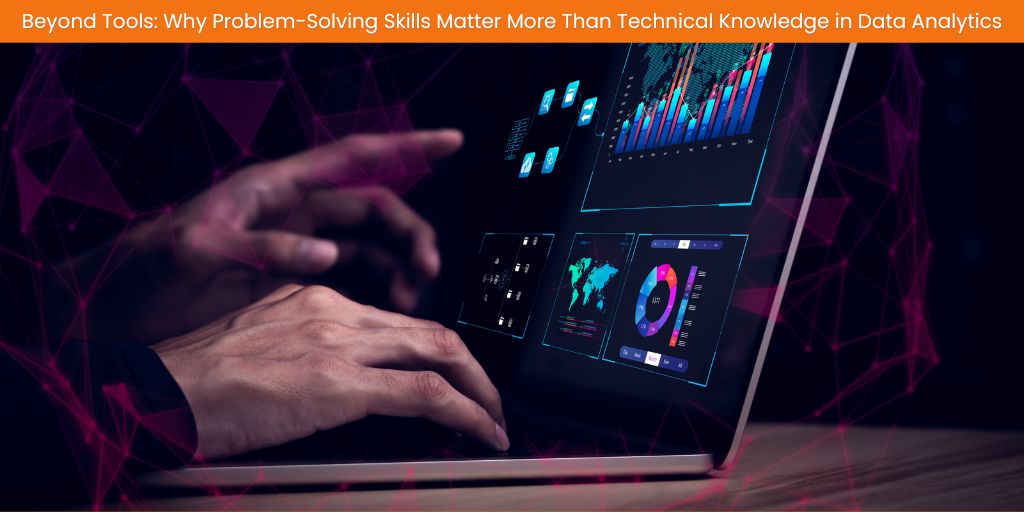
In the fast-evolving world of bictors data analytics and data science, tools and technologies often take center stage. From Python and R to Tableau and SQL, mastering these tools is essential. But while technical expertise can open doors, it is problem-solving skills that keep them open and allow professionals to excel. The ability to think critically, frame questions, and derive actionable insights is what truly defines success in this field.
The Balance Between Technical and Analytical Skills
Technical skills are the foundation of any data analytics career, but they are not the sole drivers of success. While tools facilitate the handling, visualization, and analysis of data, the true value lies in interpreting what the data says and turning insights into strategies.
For instance, an analyst might use Python to process datasets efficiently, but without the ability to ask the right questions – like “What trends are driving customer churn?” – the technical work may not yield meaningful results. Bridging the gap between tools and thinking requires strong analytical skills and a deep understanding of the problem at hand.
Real-World Examples of Problem-Solving in Bictors Data Analytics Projects
Take a retail company aiming to optimize its supply chain. A data analyst might have access to powerful software and dashboards, but identifying inefficiencies requires more than just running reports. It involves understanding the nuances of inventory management, recognizing patterns in delays, and aligning insights with operational goals.
Similarly, a machine learning model predicting customer behavior is only as good as the questions it was designed to answer. Problem-solving skills are key to defining these questions, refining the model’s features, and ensuring outputs are actionable.
Developing Analytical Thinking
Analytical thinking isn’t innate – it’s a skill that can be nurtured. Here are a few steps to develop it:
- Ask the Right Questions: Start by clarifying the problem. Break it into smaller, manageable components.
- Adopt a Data-Driven Mindset: Practice basing decisions on evidence rather than intuition.
- Engage in Continuous Learning: Stay informed about industry trends, new analytical methods, and case studies.
- Collaborate: Work with cross-functional teams to gain new perspectives and expand problem-solving approaches.
- Practice Critical Thinking: Challenge assumptions and validate conclusions by seeking alternative viewpoints.
Industry Perspectives on Most Valued Skills (MVS)
Industry leaders consistently highlight problem-solving as a top skill for data analytics professionals. A recent survey by LinkedIn identified analytical reasoning as one of the most in-demand skills globally. While tools come and go, the ability to tackle complex problems is timeless and universally appreciated.
Also Read: 6 Data Science Learning Mistakes that are Killing your Career Progress
A Framework for Approaching Data Problems
To solve data challenges effectively, consider this simple framework:
- Define the Problem: What is the goal? Who are the stakeholders? What does success look like?
- Understand the Data: Explore its structure, relevance, and quality. Are there gaps?
- Formulate a Hypothesis: Develop assumptions based on available information.
- Analyze and Model: Use appropriate tools, but ensure the process aligns with the problem.
- Communicate Findings: Translate results into clear, actionable insights for decision-makers.
Focus on Skills That Matter
While tools are indispensable, they are merely the vehicles of data analytics. Problem-solving, critical thinking, and analytical reasoning are the driving forces that ensure meaningful results. As you hone your data analytics skills, prioritize developing a mindset that focuses on solving real-world problems.
Ready to enhance your data analytics journey?
Explore our tailored programs designed to equip you with both technical expertise and critical problem-solving skills. Visit Bictors today to learn more!